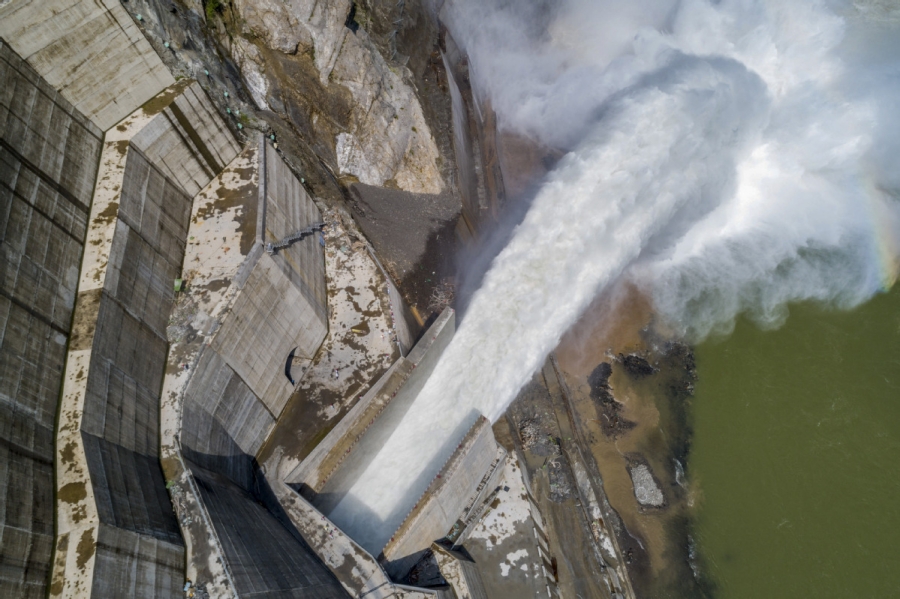Ministry to monitor environmental impact of renewable energy projects

The Baihetan Hydropower Station discharges flood waters. [Photo/Xinhua]
China will roll out measures to minimize the impact of the development of green energy, such as wind turbines and solar panels, on the country's biodiversity during the 14th Five-Year Plan (2021-25) period, according to a recent environmental impact assessment action plan released by the Ministry of Ecology and Environment.
The country has already taken some effective steps to beef up ecosystem conservation during the 13th Five-Year Plan from 2016 to 2020.Through the overall environmental impact assessment for the development plans of 30 river basins, the ministry suggested the cancelation of roughly 200 water conservancy and hydropower projects during that period, the document released recently said.
It also noted efforts in stepping up ecosystem conservation and restoration in major projects. In a gradual manner, wildlife crossings for land and water-based animals, and new alternative habitats have become necessary elements in the construction of hydropower and in-line projects such as electricity transmission and water diversion.
As China forges ahead with its ambitious climate targets, the country will incorporate climate change factors into its environmental impact assessments, according to the document. But, measures will be taken to prevent projects that serve those targets from jeopardizing the habitats of protected species.
China aims to peak carbon dioxide emissions before 2030 and realize carbon neutrality before 2060.
The ministry will endeavor to promote pilot programs assessing greenhouse gas emissions at industrial parks. In environmental impact assessments for coal mining projects, greater importance will be attached to the control of marsh gas, the major content of which is methane, a much more potent heat-trapping gas than carbon dioxide.
The environmental watchdog will establish and then make efforts to improve an environmental management system that covers all processes in hydropower development, which will include a strengthened requirement on adopting biodiversity conservation measures, such as habitat protection, wildlife-crossing construction and the propagation of aquatic organisms.
The ministry will mull over and hammer out environmental impact assessment policies for wind and solar power projects, the document said, in its efforts to avoid development in important habitats and on the migratory routes for birds and other wildlife.
Another major concern in drafting policies is to "prevent concentrated development in environmentally fragile areas", it said.
The ministry will promote follow-up monitoring and assessment on these projects' environmental impacts.
Zhu Yuan, an expert with the ministry's Foreign Environmental Corporation Center, said the measures on wind and solar power projects have been introduced to cope with some potential problems during the 14th Five-Year Plan period.
The country, for example, has planned to accelerate the construction of large-scale wind and solar power development bases in arid and barren areas.
























